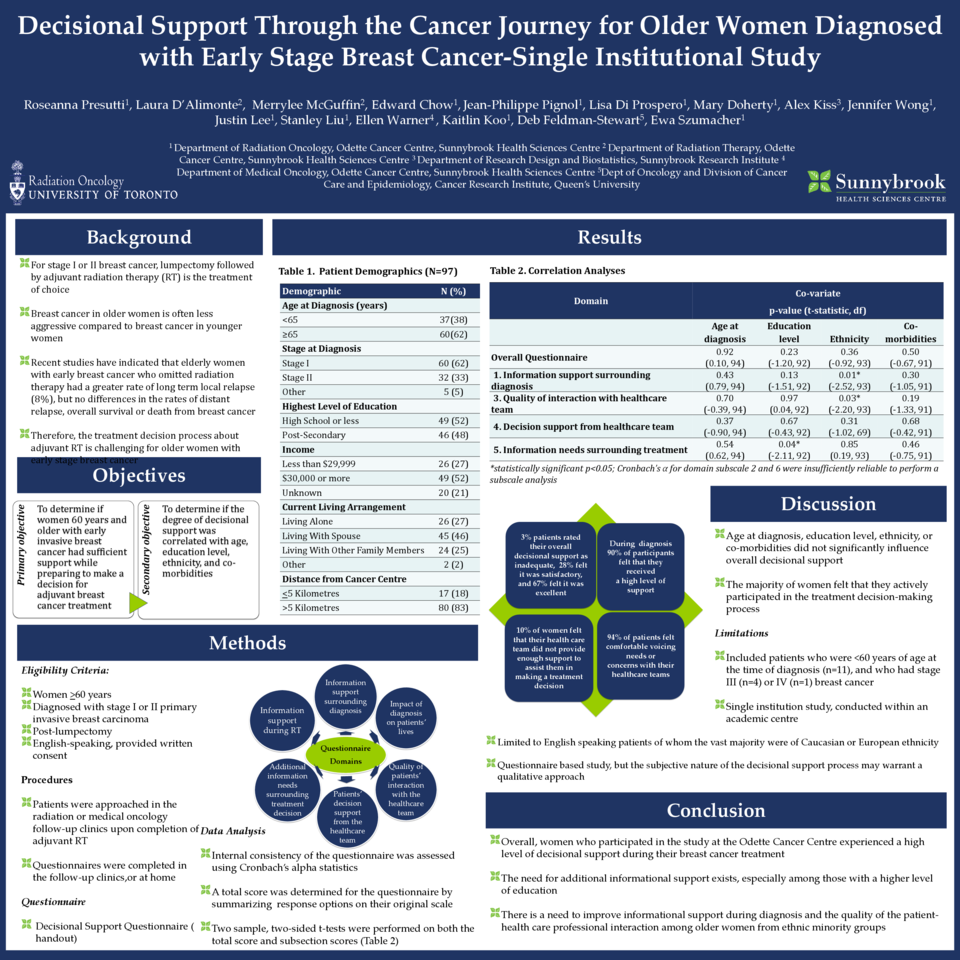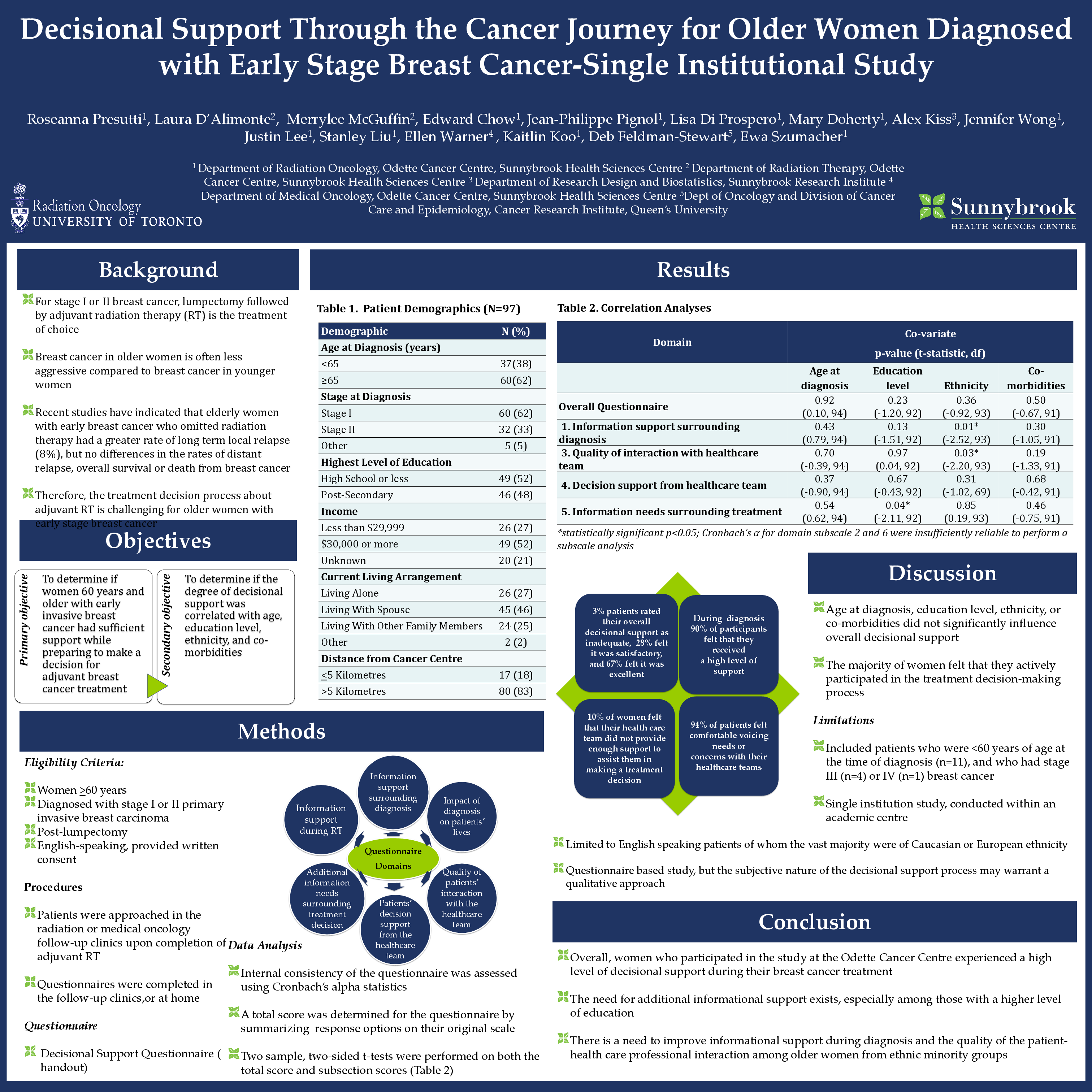Abstract
E. Szumacher1, L. D'Alimonte1, R. Presutti1, E. Chow1, M. McGuffin1, J.-P. Pignol1, L. Di Prospero1, M. Doherty1, A. Kiss1, J. Wong2
1University of Toronto, Toronto, ON
2Queens University, Kingston, ON
Background: Women 60 years and older often feel less assertive when making their breast cancer-treatment decisions and may not have sufficient support offered by their health-care teams.
Purpose: To determine if older women treated at Odette Cancer Center with Stage I and II breast cancer have sufficient support in making cancer treatment decisions.
Materials and Methods: Patients 60 years and older, post-lumpectomy, with Stage I and II, invasive breast carcinoma (IBC) were eligible. Patients were contacted upon completion of their treatments and were asked to complete a 50-item questionnaire. The questionnaire investigated patients’ information support surrounding breast cancer diagnosis, its impact on patients’ lives, quality of interaction and support from their healthcare teams.
Results: A total of 97/137 patients participated. Eighty nine percent were >60 years at the time of diagnosis and 95% were Stage I or II IBC. Twenty seven percent of patients received chemotherapy, while 63% received hormone therapy, and 96% received radiation treatment. Ten women indicated that they received low support during their cancer diagnosis. In 56% diagnosis impacted on daily routine and lifestyle. Twenty-one percent received very little or no information about risks, benefits and side effects before or during their treatment. Seventy-one percent of women felt that they actively participated in their treatment decisions. Fifty-eight percent of participants would value a worksheet to list questions for their healthcare teams while discussing their treatment options. Three percent of participants felt that their decision support during treatment was inadequate.
Conclusions: Majority of older women felt that they had sufficient support while making a treatment decisions for breast cancer. There are still inadequacies in support based on patients’ demographics such as age, chronic co-morbidities and education that will be presented at the meeting in details.






